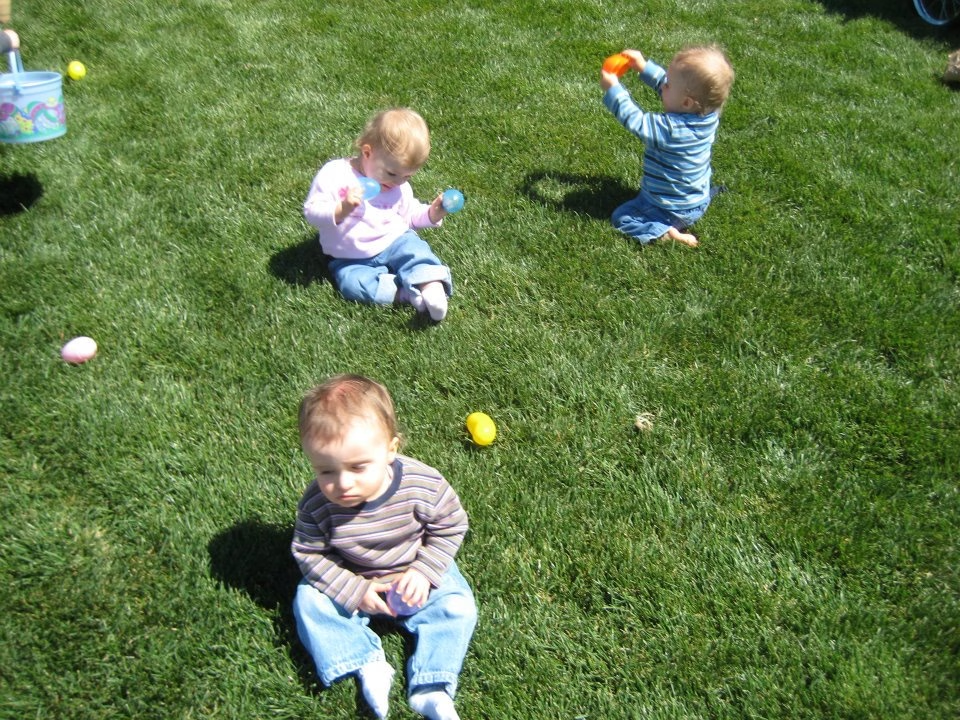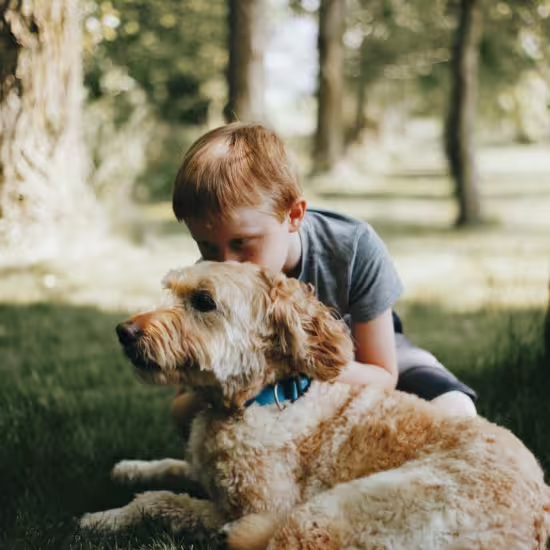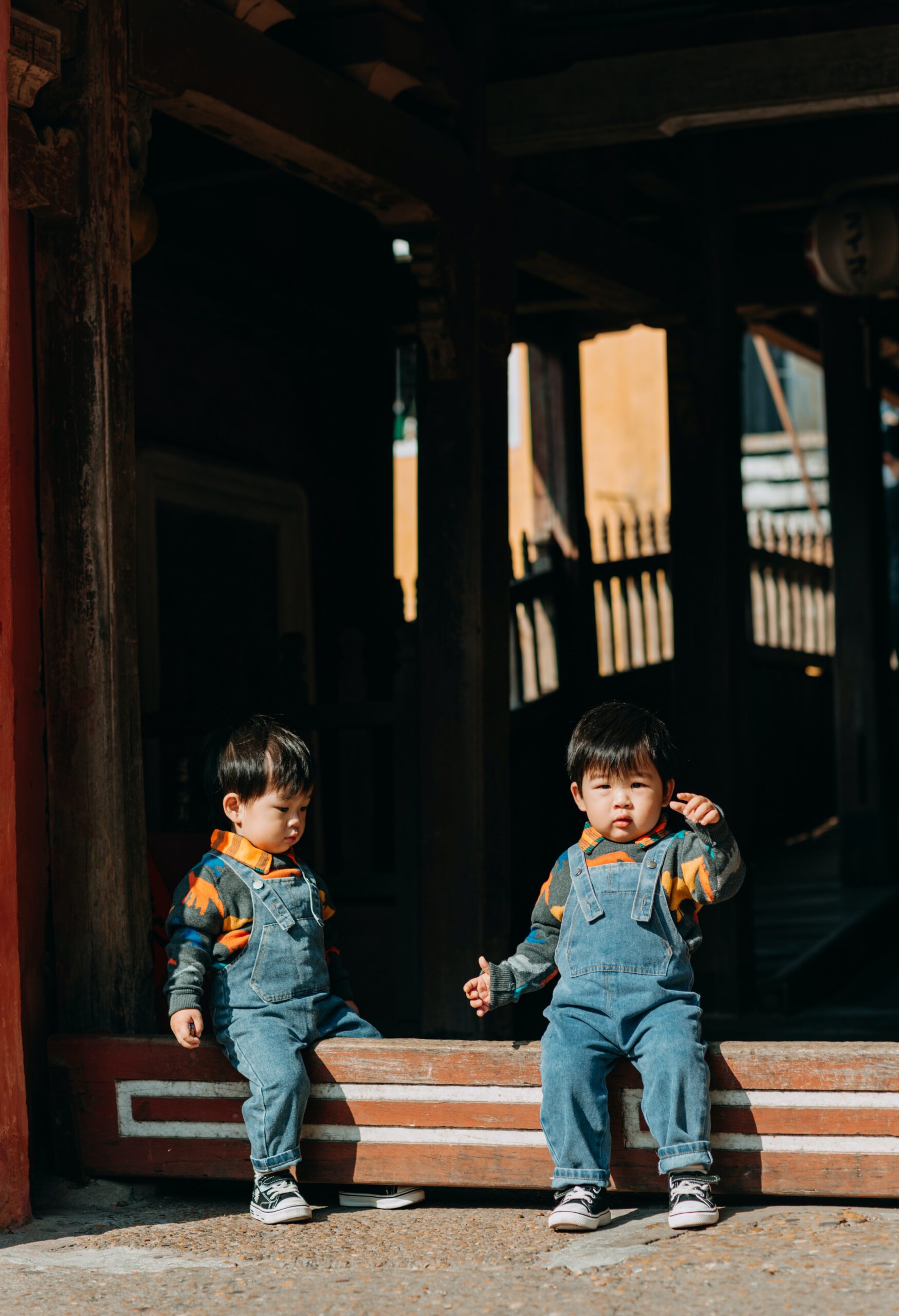This article is part of an ongoing series about helping your autistic twins adjust to different seasons. It’s important to talk about the changes that the seasons bring, as change can be difficult to manage, especially when it is unexpected. Get tips for helping your autistic twins, triplets or quadruplets to be happy and settled through spring, summer, fall and winter. In the Northern Hemisphere, spring is March, April and May. It’s a time for positivity, hope, and new possibilities, and a reminder that life is a cycle of renewal and growth.
Spring senses
Spring is undeniably an explosion for the senses. The air is alive with the chirping of birds, the buzzing of bees, and the sweet fragrance of blooming flowers. The world transforms from wet grays and whites to a kaleidoscope of greens, yellows, pinks, and purples. For autistic children, who often experience the world through a heightened sensory lens, spring can be both very exciting, and overwhelming. You might find that one twin is captivated by the vibrant colors of tulips and daffodils, their visual senses delighted by the sudden burst of beauty. The other twin might find bird songs and buzzing insects intensely distressing, their auditory senses overloaded by constant noise.
Spring not only has bright flowers, but also additional hours of daylight. This is welcome for most after dark winter mornings, however it can be overwhelming for those with light sensitivities. You may find your autistic triplets need sunglasses or wide-brimmed hats for outdoor activities, or additional curtains or blinds for indoor activities. Opt for breathable, natural fabrics for clothing, and keep a gentle, unscented lotion on hand to address any skin irritations arising from either the sun or insects.
The outdoors will bring a cocktail of new scents, from blooming lilacs, freshly mown grass or a neighborhood barbecue. Introduce these olfactory experiences gradually, perhaps with a single, carefully chosen flower indoors, and closely monitor your children’s reactions. You might also notice your autistic triplets struggle with plant or seasonal allergies and may need to encourage additional hand washing or clothing changes to keep allergens at bay.
Auditory sensitivities can be heightened by the increased sounds of birds chirping, lawnmowers, and children playing outdoors. If you haven’t already, it might be time to try some noise-canceling headphones or earplugs for your autistic twins. That way they can still participate in activities, but will have a little more control over the level of volume they are exposed to.
Let’s go fly a kite
With improving weather, your autistic twins may want to spend more time outdoors. It feels good to see the sun in the sky and feel it on our skin again, and we can once again benefit from the natural Vitamin D we gather from the sun’s rays. But remember, the shift from the cozy indoors of winter to the expansive outdoors of spring can also be overwhelming, both physically and emotionally so ensure you approach new things at the right pace for your autistic twins.
Spring is a great time to explore nature. Encourage exploration of nature’s textures: the soft petals of daffodils, the rough bark of a budding tree, the cool smoothness of river stones. Ask your autistic triplets to point out differences between a winter tree and a spring tree, or what the sky looks like. You may also notice baby birds and animals, along with different insects, slugs or snails and this time of year! Play i-spy or nature bingo to see who can spot the most items first. You can also take this time to talk about plants and growth. Start a small garden or even plant seeds in a cup in your kitchen window.
Get those cooped up bodies moving again with outdoor and gross motor play. Walk or bike to a local park, find some swings, climb a tree, or just run through a field of tall grass. The fresh air and sunshine can be invigorating, and the physical exertion can help release pent-up energy. Fly a kite! Blow bubbles! Take their shoes off and let them run through the grass, across pebbles or even splash around in puddles! They may prefer sandals or wellington boots too – work with your autistic twins to learn their preferences.
Spring often brings unpredictable weather – warm sunny days followed by sudden showers. Talk with your autistic triplets about what clothing we need when it’s sunny, versus what we should wear when it rains. Fluctuating temperatures require flexible adjustments in clothing. Layered outfits are essential, allowing for quick adjustments as the day progresses. These changes in routine and environment can be particularly challenging for autistic children who often thrive on predictability and structure.
Adapting to change

Spring often disrupts established routines with changes in school schedules, increased outdoor activities, and the shift in daylight hours. For autistic twins, this can lead to anxiety and confusion. The shift to daylight saving time in spring can be particularly challenging for autistic individuals, disrupting established sleep patterns and daily routines. The sudden change can heighten sensory sensitivities, leading to increased anxiety and irritability. There are a few ways that you can help alleviate this distress. For example, gradually adjust bedtimes and wake-up times in the week leading up to the change.
There are lots of holidays in Spring, including Passover, Easter and Holi. Schools typically break up for spring holidays and your autistic twins might have a week or two out of school at this time. For changes in school routines, collaborate closely with teachers and therapists to ensure a smooth transition.
Supports that work
Visual schedules become even more critical during this time. Create detailed calendars that outline daily activities, including outdoor playtime, therapy sessions, and meal times. Use clear, visual cues, such as pictures or symbols, to represent each activity. Discuss changes well in advance by reviewing the schedule together and discussing any potential variations. Social stories can also be incredibly helpful in explaining new routines or activities, such as a trip to the park or a spring festival. Maintain consistency in familiar routines, like bedtime and mealtime, as much as possible to provide a sense of stability and predictability.
Creating safe and familiar spaces is also essential for navigating routine changes. Designate a quiet corner or room where your twins can retreat when feeling overwhelmed. Fill it with comforting items, such as weighted blankets, favorite toys, or sensory tools. If outdoor activities are planned, gradually introduce them, starting with short durations and familiar locations. Consider bringing along familiar items, like a favorite blanket or toy, to provide a sense of comfort in new environments.
Spring self care
With all of these changes, it’s important to also help your autistic twins learn how to practice self care in spring. Maybe during bedtime or afternoon relaxing time, listen to relaxing spring noises such as songbirds or gentle rainstorms to help find calm and feel more connected to nature. You might also have a spring themed spa day and do mini facials or massages together as a family. Don’t forget about spring read aloud books the entire family can enjoy.
It’s also a great time to learn some simple spring yoga such as tree, warrior or rain poses. Simple meditations and breathing exercises can help autistic twins rebalance and find some peace when emotions get too big. A gentle butterfly hug technique can help your twins learn how to apply a calming deep pressure hug. Teach your autistic twins to advocate for themselves, and ask for time to relax when the excitement of spring just gets too much for their autistic brains and bodies.
Spring is a good time to introduce new fruits or vegetables or more healthy snacks. You might be able to find a produce market or pick yourself farm site to turn hunting for healthy fruit a family activity. Introduce those fruits and vegetables into variety of spring themed recipes and snacks such as smoothies, fruit kebabs or veggie pizzas. Engage their senses by exploring which foods are sour and which are sweet? Which are crunchy and which are soft? Which are cold and which are warm? Don’t forget to drink plenty of water too!
Spring is for you
No matter how you choose to celebrate spring in your family, remember there is no one “right” way to do it. Don’t get caught up in what other parents are doing, and embrace the individual strengths and needs of your family. And remember that our Community is here for support and to share experiences! Together, we can create a season that finds a balance between new activities and relaxation time.
How do you help your autistic twins during Spring? Share in the comments below. Like our content? Why not buy us a coffee?
Be sure to subscribe for the latest news and updates!
This website uses affiliate links. We may make a small commission from purchases when you use these links, at no additional cost to you. As an Amazon Associate we earn from qualifying purchases.





